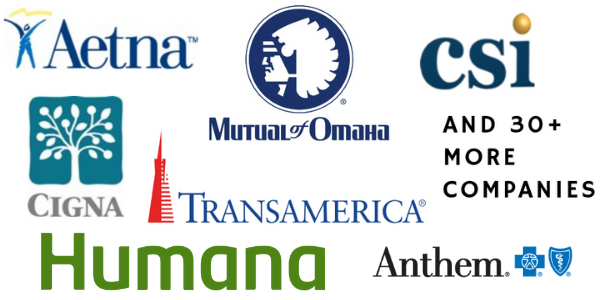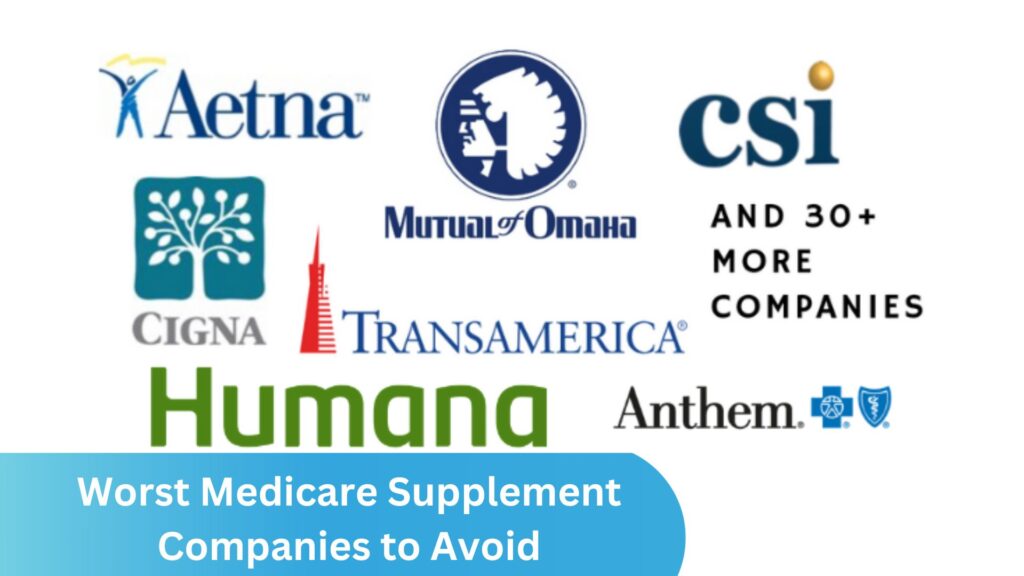Medicare Supplement Insurance (also called Medigap) helps cover the out-of-pocket costs that Original Medicare doesn’t pay, such as copayments, coinsurance, and deductibles. For millions of seniors, having the right Medigap plan means better financial protection and peace of mind.
But not all Medicare supplement companies are created equal. Many seniors worry about choosing the wrong provider — one that raises rates too quickly, makes billing confusing, or delivers poor customer service.
The quick answer is that some companies consistently receive higher-than-average complaints and lower satisfaction ratings. However, the “worst” Medicare supplement company can vary depending on your state, health needs, and budget. That’s why it’s important to know how to identify red flags before you enroll.
While most major insurers like UnitedHealthcare, Aetna, and Mutual of Omaha tend to have large customer bases and relatively average complaint ratios, smaller regional companies and lesser-known carriers are often flagged for higher-than-expected complaints.
According to the NAIC complaint index and BBB reports, companies with more complaints relative to their size are often criticized for:
-
Delays in paying claims.
-
Poor customer support or long wait times.
-
Unexpected premium increases.
-
Misleading marketing or unclear plan terms.
These issues don’t necessarily make an insurer the “worst” for every person, but they highlight the importance of checking both state-specific complaint data and independent customer reviews before choosing a Medicare supplement provider.
How did we Spot the Worst Medicare Supplement Companies?
When comparing Medigap insurers, watch out for these warning signs that may indicate a poor experience down the road:
-
High number of complaints: The National Association of Insurance Commissioners (NAIC) complaint index tracks how many consumer complaints each insurer receives relative to its market share. Companies with a high complaint ratio may have issues with claims processing, billing, or service.
-
Poor customer service ratings: Low scores on independent surveys, Consumer Affairs reviews, or Better Business Bureau (BBB) ratings often signal ongoing problems.
-
Unclear pricing or hidden fees: If an insurer doesn’t provide transparent rate information, or if fees are buried in fine print, that’s a red flag.
-
Frequent rate increases: All Medicare supplement premiums rise over time, but some companies have a reputation for steep or unpredictable annual hikes.
The 10 Worst Medicare Supplement Companies

This the nationwide watch list that you. Here are 10 Medicare Supplement insurers and agencies that appear often in complaint data, BBB filings, and consumer reviews. Experiences vary by state, but these names are frequently mentioned when seniors discuss frustrations with Medigap coverage.
1. United American Insurance Company
United American has shown up in multiple consumer complaint searches and broker write-ups, with Policy Guide noting recurring service issues. Many customers say they’ve dealt with slow claims processing, confusing billing, and unresponsive support, making it a company that draws mixed satisfaction scores.
2. Physicians Mutual Insurance Company
Physicians Mutual has appeared in BBB complaint listings and consumer reviews in several states, according to NerdWallet. Seniors often mention frustration with rising premiums and difficulty resolving policy questions, although some appreciate the company’s long history in the Medicare space.
3. Via Benefits Insurance Services (broker/agency)
Via Benefits, a large retiree benefits marketplace, has accumulated complaints on BBB and in consumer reviews highlighted by NerdWallet. Many policyholders report the enrollment process feels rushed or confusing, and some were surprised by unexpected billing issues after sign-up.
4. Medicare Supplement Insurance Service, Inc. (and small brokers)
Smaller agencies like Medicare Supplement Insurance Service, Inc. sometimes appear in BBB complaints, with NerdWallet cautioning that accreditation and reliability can vary. Customers have cited misleading sales tactics, poor follow-up, and limited support after purchase as common frustrations.
5. Bankers Life & Casualty Company
Bankers Life has been called out by Policy Guide and consumer articles for aggressive sales tactics and confusing policy details. Many people complain of high-pressure sales calls and difficulty understanding their coverage, though the company’s nationwide presence means others report relatively stable service once enrolled.
6. UnitedHealthcare / AARP-Branded Medigap
As the largest Medigap provider, UnitedHealthcare (which partners with AARP) attracts many complaints in raw numbers. The Annuity Expert notes criticisms about premium increases, value for cost, and customer service wait times, even though many seniors still choose it for its broad availability and trusted AARP branding.
7. Cigna (and subsidiaries)
Cigna has been flagged by The Annuity Expert and NAIC data for variable pricing and mixed service quality across states. Customers are divided: some like the competitive rates, while others report billing errors, uneven support, or regional claim disputes.
8. Aetna (and regional affiliates)
Investopedia highlights that Aetna’s customer service varies by state and affiliate, with NAIC data showing occasional complaint spikes. Many enrollees say they’ve had smooth claims experiences, but others complain of inconsistent support, billing confusion, and sudden premium increases.
9. HealthMarkets (agency/network)
HealthMarkets, a large insurance agency network, has been criticized in NAIC complaint data for sales transparency issues. Consumers often report feeling pressured into unsuitable plans or misled about policy details, even though some agents provide helpful personal guidance.
10. Smaller Regional Carriers / Niche Writers
Many small, regional Medigap carriers show up in NAIC reports with high complaint indexes, simply because a handful of complaints can outweigh their limited customer base. Policyholders sometimes praise personalized service, but others complain about limited plan options, steep rate hikes, and poor communication.
Red Flags to Watch Out For

Before picking a Medicare Supplement (Medigap) provider, watch out for warning signs that suggest poor performance or risk down the line:
-
High number of complaints: Use the NAIC complaint index, which compares how many consumer complaints an insurer receives relative to its size. A value greater than 1.0 means more complaints than expected given market share.
-
Poor customer service ratings: Reviews on the Better Business Bureau (BBB), J.D. Power, or independent consumer surveys can reveal patterns of long wait times, claim denials, or unresponsiveness. Investopedia
-
Unclear pricing or hidden fees: If premium quotes are opaque, disclaimers are buried in fine print, or additional charges pop up unexpectedly, that’s a red flag.
-
Frequent rate increases: All Medigap plans increase premiums over time, but insurers that raise rates aggressively or unpredictably may be a problem.
Conclusion
Choosing the right Medicare Supplement plan can feel overwhelming, especially when some companies appear repeatedly in complaints or consumer reviews. While the insurers listed above have shown patterns of service issues, billing confusion, or aggressive sales practices, experiences can vary widely by state, plan, and individual circumstances.
That’s where Wiseworq comes in. Our mission is to provide accurate, up-to-date, and unbiased company insights so you can make informed decisions about your Medicare coverage.


